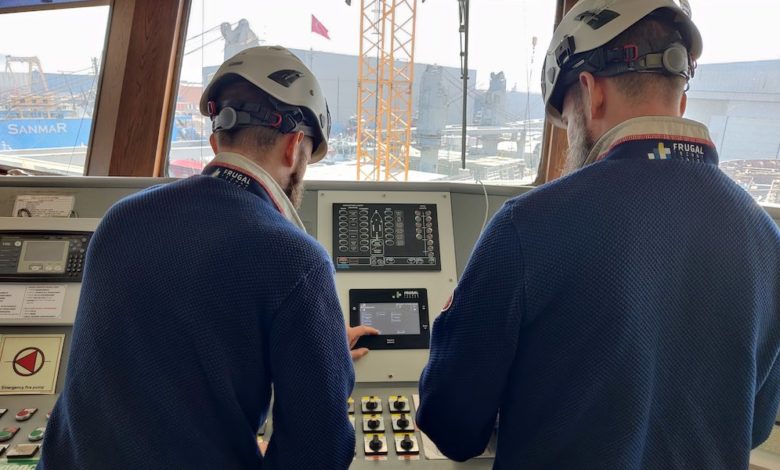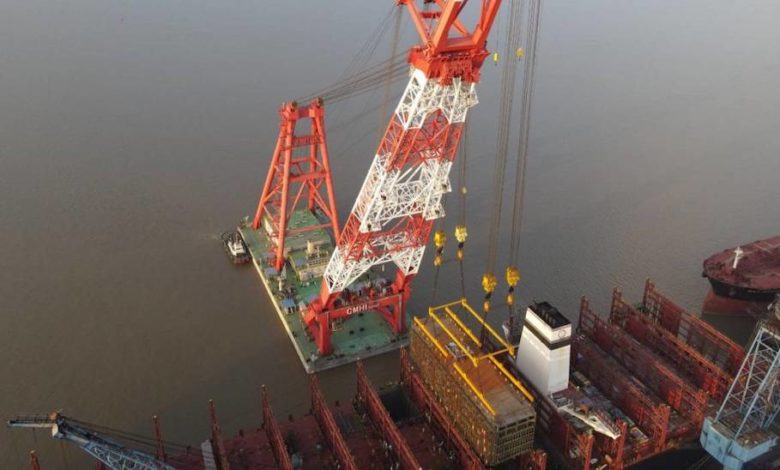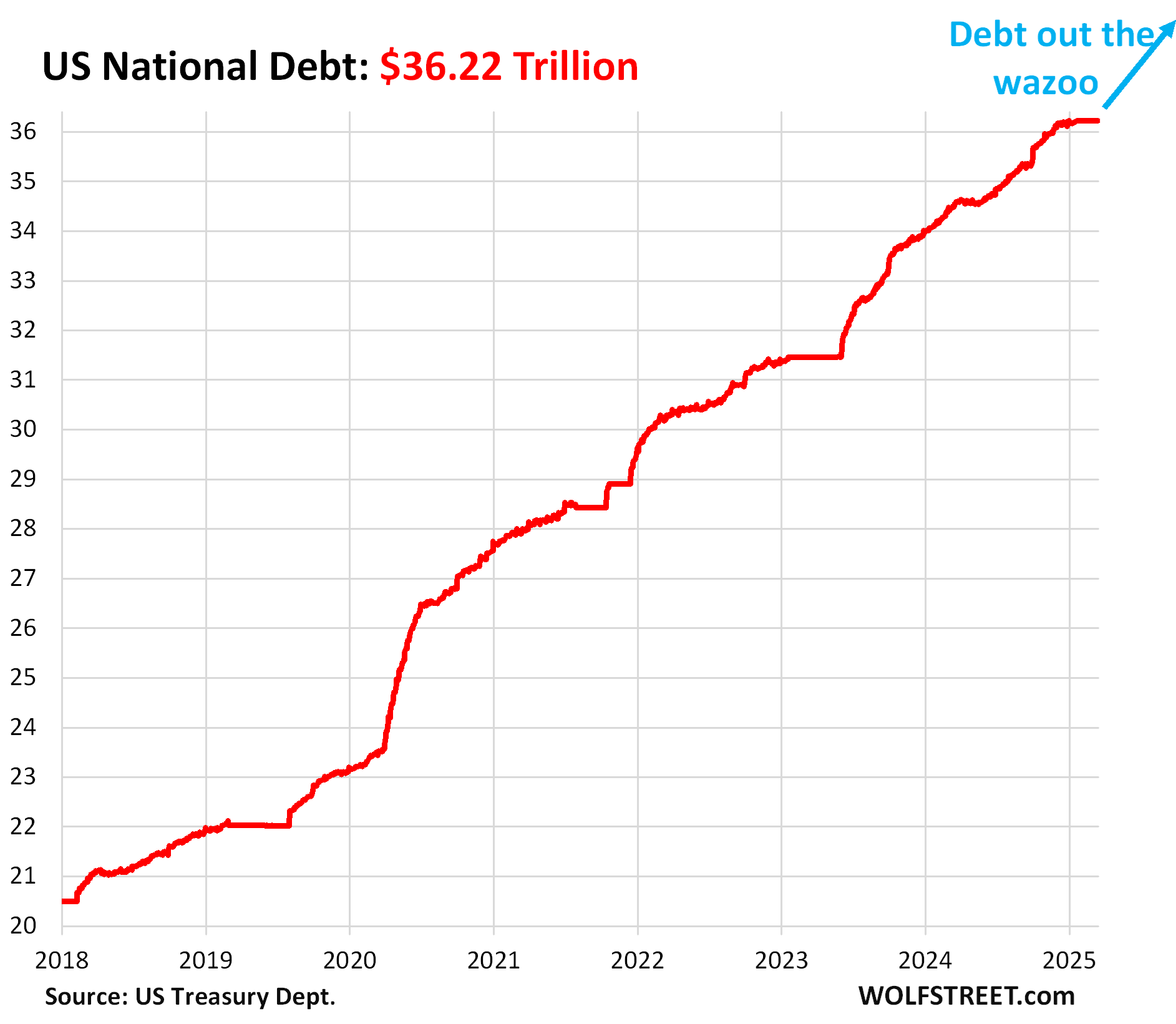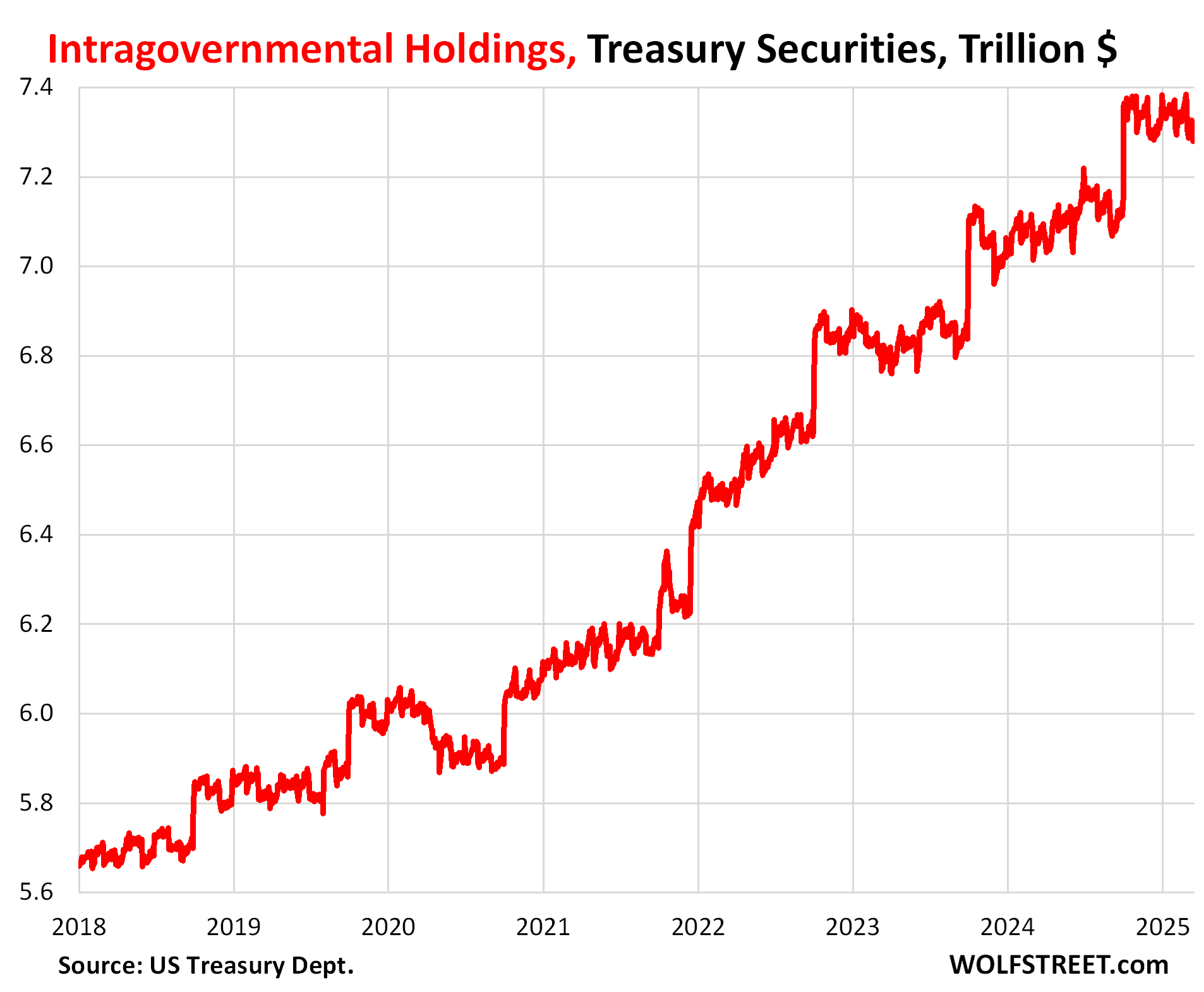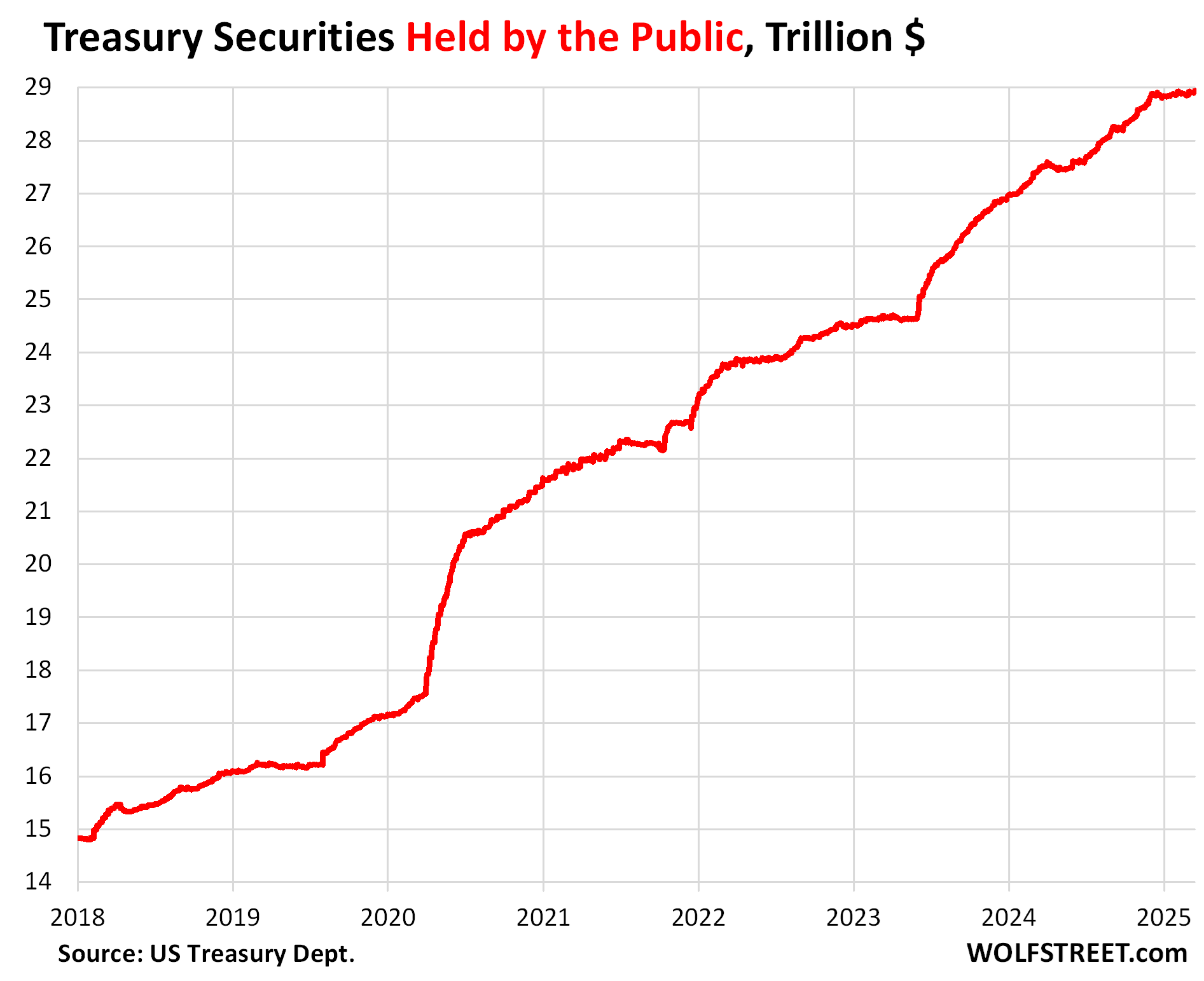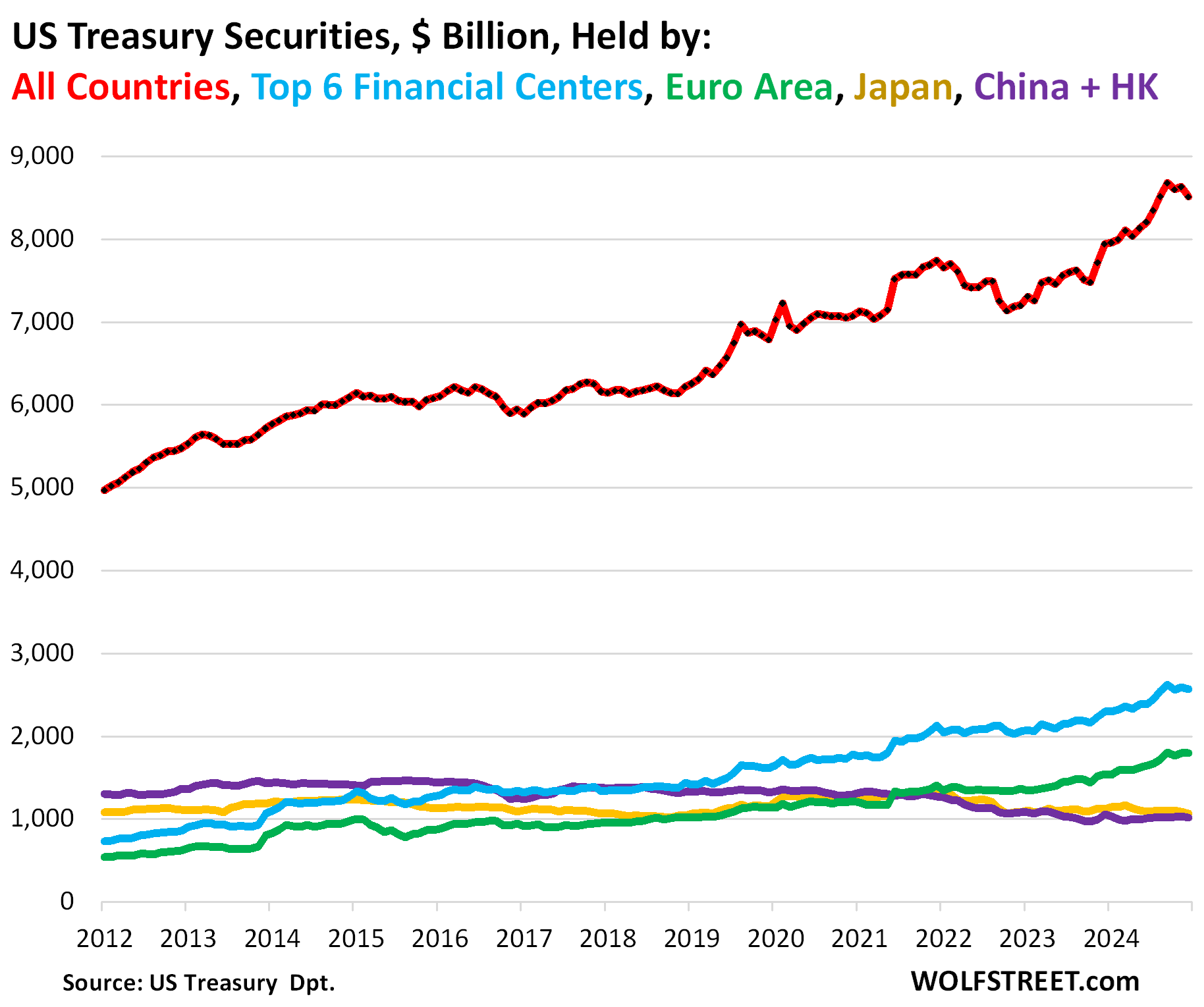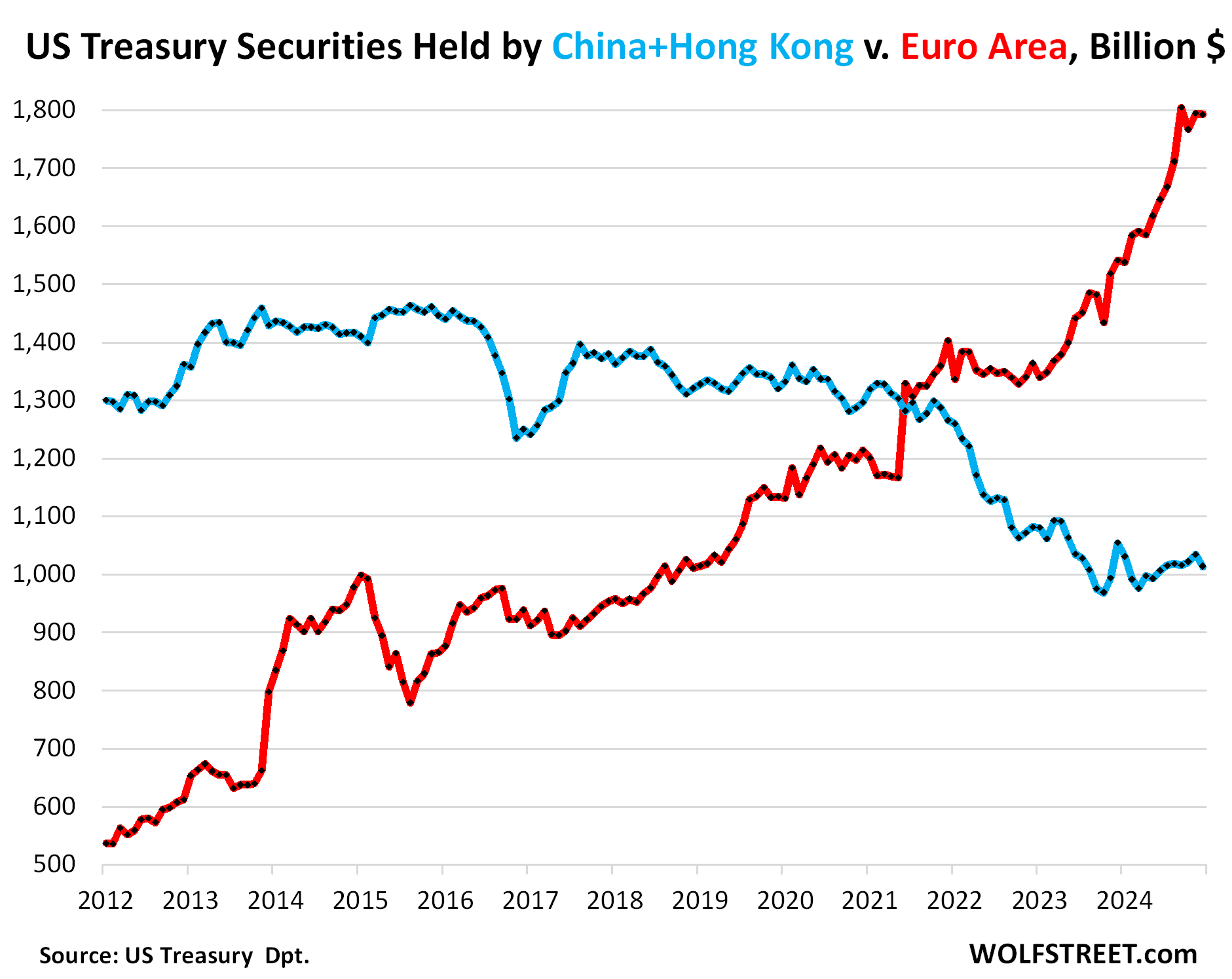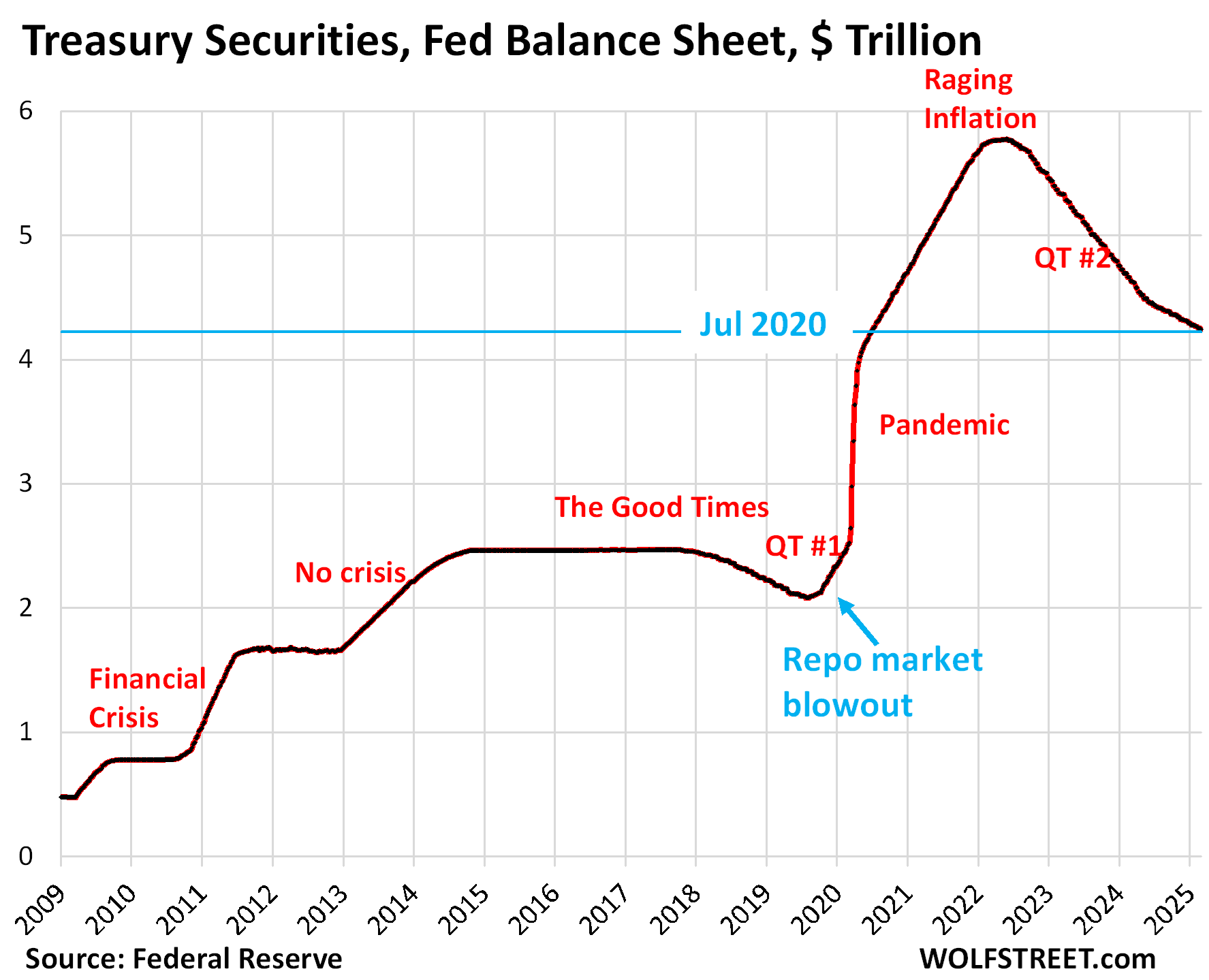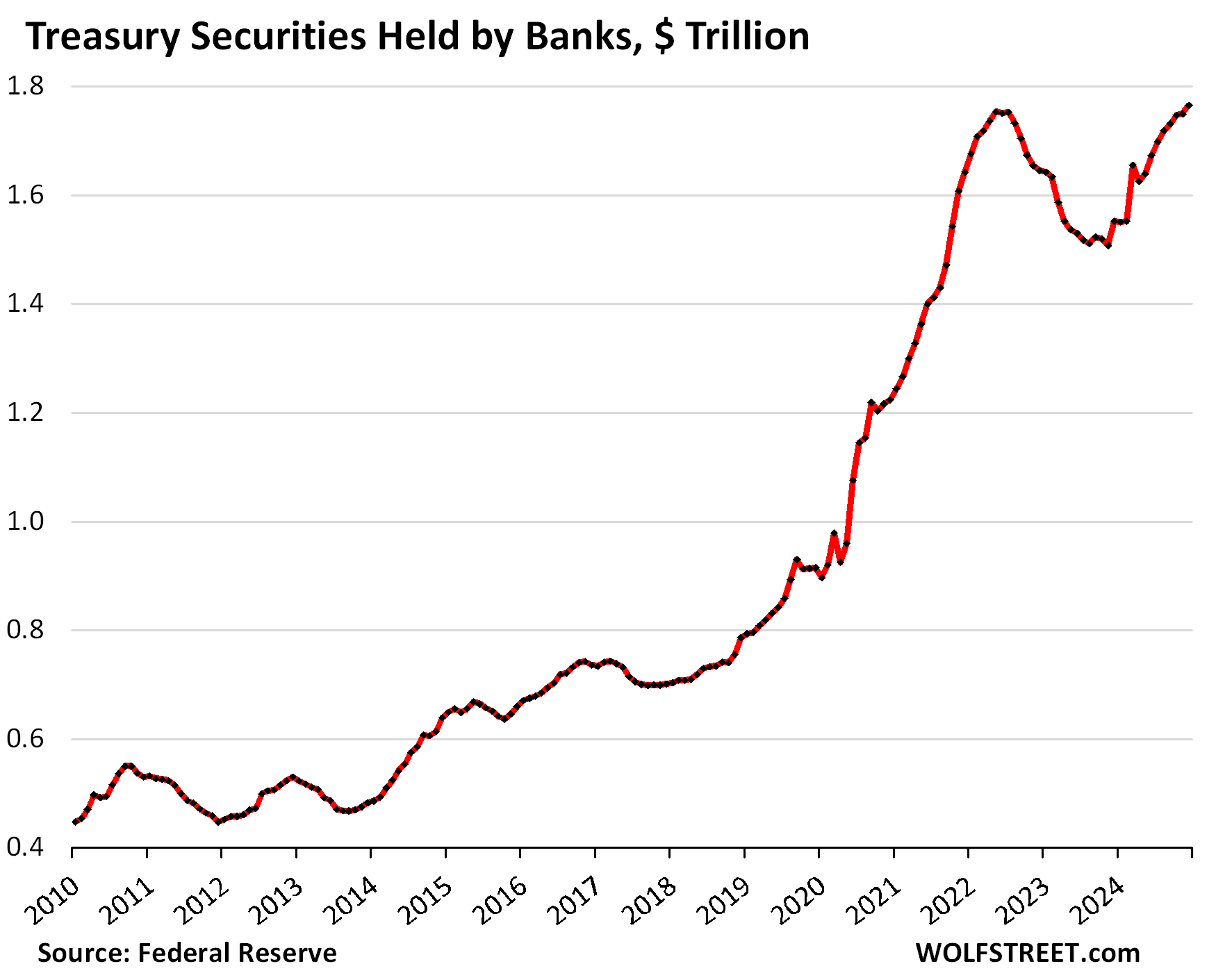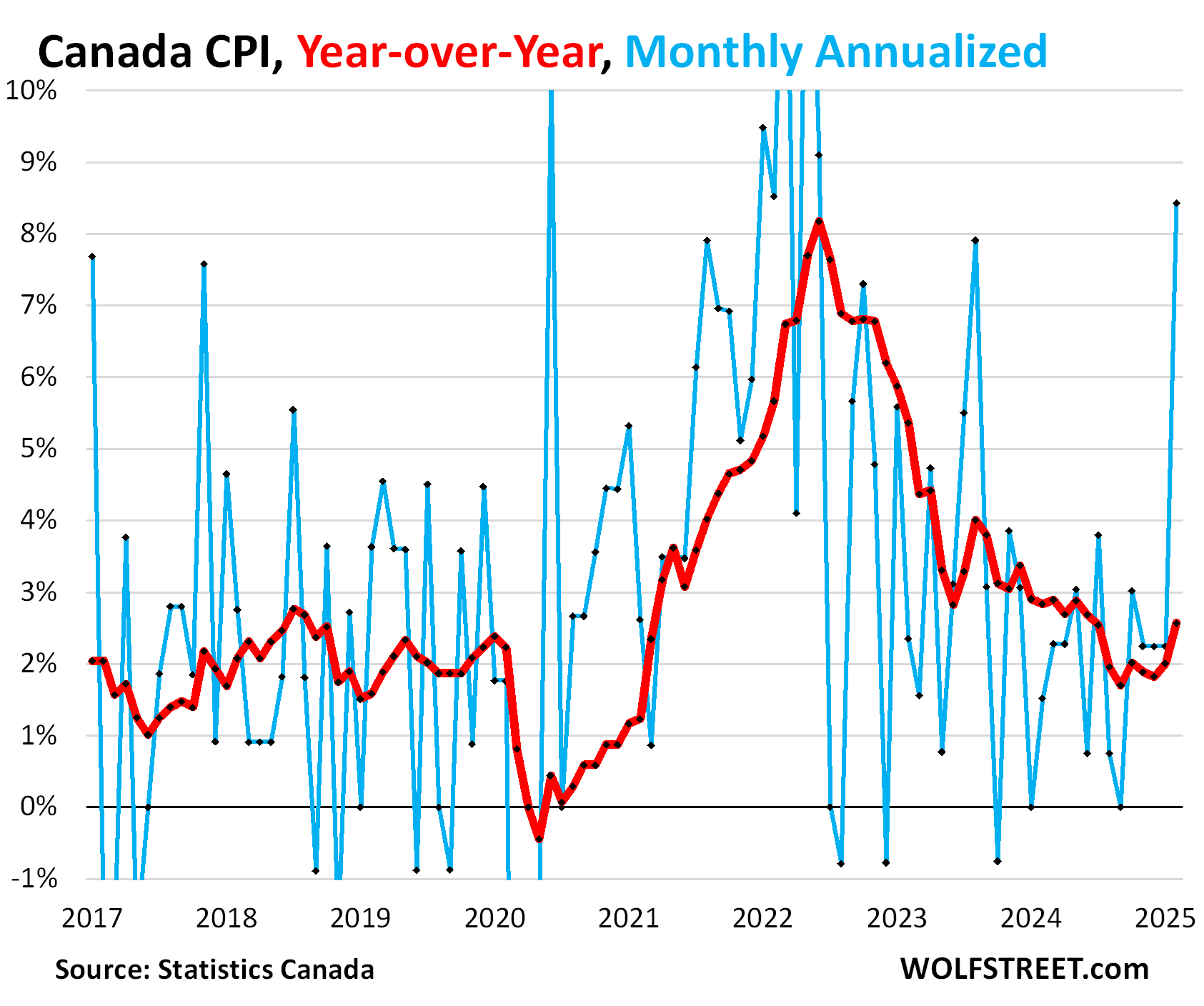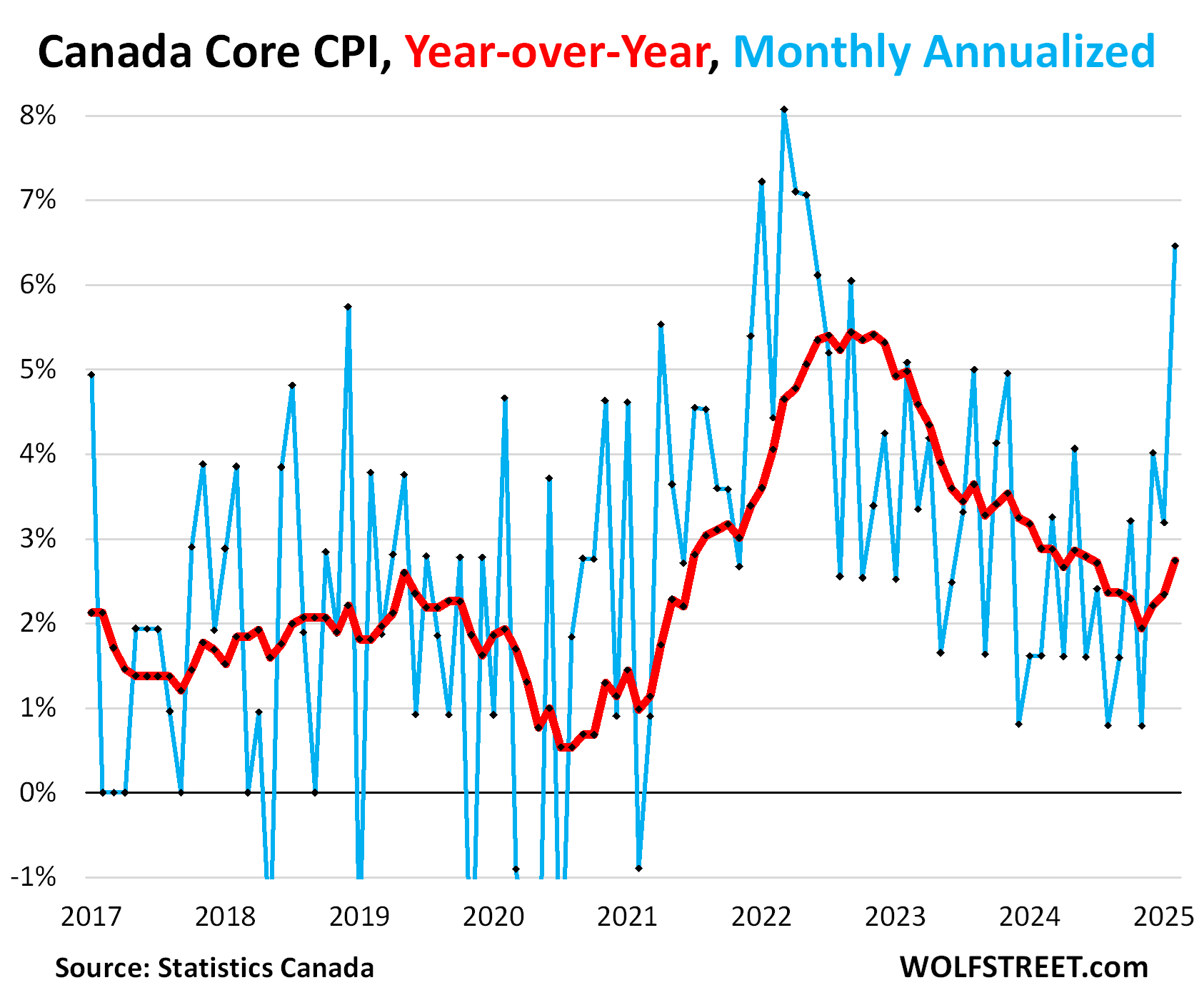Energy News Beat
Daily Standup Top Stories
Trump and Putin Conclude Phone Call as US Pushes Ceasefire
ENB Pub Note: While Putin is saying that Ukraine cannot receive more munitions and weapons for the ceasefire, it appears there was a positive dialogue. The loser in this process is the Left-leaning EU. I […]
Buried fortune: US finds $8.4 billion in rare earths sitting in coal ash landfills
For years, the United States has depended on imports of rare earth elements, the critical materials found in everything from smartphones to renewable energy technologies. But in a surprising twist, researchers from The University of […]
New Study: Inflation Reduction Act Likely To Cost Taxpayers Trillions
A new study shows that the Inflation Reduction Act subsidies could cost taxpayers trillions over 25 years. When former President Joe Biden’s signature Inflation Reduction Act (IRA) passed in 2022, it did so along party […]
Crowley deploys first US LNG carrier to supply Naturgy’s facility in Puerto Rico
According to a statement by Crowley, the milestone will provide Puerto Rico with increased access to the supply of US mainland-sourced LNG, helping address the island’s ongoing power demands. Crowley and Naturgy have entered into […]
Judge Blocks NJ Offshore Wind Farm As Trump Reverses Biden’s Green Gambits
A judge revoked Atlantic Shores’ EPA permit, blocking NJ’s offshore wind project as Trump reverses Biden’s green policies over costs and wildlife risks. A federal judge at the Environmental Protection Agency (EPA) revoked a permit […]
Harold Hamm: ‘Drill, Baby, Drill’ Needs $80 Oil – Or as Stu says, “Drill baby Drill when fiscally responsible”
ENB Pub Note: Stu has been saying that the oil price for 2025 needs to be at the $80 mark for “Drill baby Drill when fiscally responsible.” ESG has had one impact on Exploration and […]
Highlights of the Podcast
00:00 – Intro
01:39 – Trump and Putin Conclude Phone Call as US Pushes Ceasefire
03:47 – Buried fortune: US finds $8.4 billion in rare earths sitting in coal ash landfills
05:14 – New Study: Inflation Reduction Act Likely To Cost Taxpayers Trillions
06:58 – Crowley deploys first US LNG carrier to supply Naturgy’s facility in Puerto Rico
08:20 – Judge Blocks NJ Offshore Wind Farm As Trump Reverses Biden’s Green Gambits
10:06 – Harold Hamm: ‘Drill, Baby, Drill’ Needs $80 Oil – Or as Stu says, “Drill baby Drill when fiscally responsible”
14:09 – Outro
Follow Michael On LinkedIn and Twitter
– Get in Contact With The Show –
Video Transcription edited for grammar. We disavow any errors unless they make us look better or smarter.
Stuart Turley: [00:00:10] Hello everybody. Welcome to the Energy Newsbeat Daily Standup. My name’s Stu Turley, President CEO of the Sandstone Group. It is just fun out there on the news desk today, but let’s take a look at the stories for today. Trump and Putin conclude phone call as U.S. pushes ceasefire. Next around the corner, buried fortune. U.S. finds $8.4 billion in rare earth sitting in coal ash landfills. A study estimates that coal ash contains 11 million tons of rare earth elements. That is huge. New study, inflation reduction act likely to cost taxpayers trillions. What is a trillion? It’s unfathomable how much this is porculous. Crowley deploys first US LNG carrier to supply natural facility in Puerto Rico. This has long a reach on this story for even though it sounds like a small story. Here’s another fun one coming around the corner. Judge blocks New Jersey offshore wind farm as Trump reverses Biden’s green gambits. And then Harold Hamm finishes up, but drill baby drill needs $80. Or as I say, drill baby drill when fiscally responsible. There’s a lot of news coming around the crude oil area is are we at peak oil? Are we at peak permitting? But hey, we’re going to dive into it here in a sec. [00:01:39][89.0]
Stuart Turley: [00:01:39] Let’s start off with President Trump and President Putin conclude their phone call as U.S. pushes a ceasefire. President Trump on his phone on his truth social post says, My phone conversation day with President Putin of Russia was a very good and productive one. We agreed to immediate ceasefire on all energy and infrastructure and an understanding that we will be working quickly to a complete ceasefire and ultimately an end to this very horrible war between Russia and Ukraine. This war would have never started if I were president. Many elements of a contract for peace were discussed, including the fact that thousands of soldiers are being killed and both President Putin and President Zelensky would like to see it end. That process is now in full force and effect and we will hopefully for the sake of humanity get the job done. Well done. I still think President Trump is fighting an uphill battle, needs some help there. But when we take a look at Bloomberg, Bloomberg put out there in their article, European leaders fear that the US may cut a deal without them. They’re a little late to the party because they’re wanting a war and they’re not wanting it stopped. Putin wants a halt in arms sale before agreeing to pause. And I kind of agree with President Putin on this from the standpoint that he doesn’t want us re-arming the Ukrainians only to then throw away the time and let that be a time for them to redo it. But if he is doing it in good faith and he stops bombing everybody and stops the killing, I can agree and think that it would be a good thing. So that is a tough call. I don’t have a really good opinion one way or the other on that. But hey, we’re following it, and we hope for the best, and we hope to have it end soon. The big thing about ending this soon is that all of the other articles and the traffic and chatter that I’m seeing around the world for people wanting cheap Russian natural gas in the EU. They’re tired of high energy prices. Well, let’s see how that goes. [00:03:47][127.6]
Stuart Turley: [00:03:47] Buried fortune, U.S. finds 8.4 billion in rare earth minerals sitting in coal ash landfills. A study estimated that coal ash contains 11 million tons of rare earth minerals. This is actually kind of the the in some of the key things that we need to look at for technology in taking a look at things that we already have here. We would not be able to look at this if the Biden administration was still in power, but because we can take a look at coal ash from this, The powdery by-product left after burning coal for fuel has been considered an industrial waste product. However, scientists identified coal ash as abundant and accessible source of rare earth elements. And when you sit back and kind of think, is it gold? Some of it’s in gold. And the University of Wyoming in saying the upfront process of extracting the minerals is already taken care of for us. So this is actually very good. They’re talking about the Appalachia basin is the highest concentration with 431 milligrams per kilogram however only 30 percent is easily recoverable from the Powder River basin. So it’s going to be basin dependent but it sounds like it is a good use for coal ash that we have a lot of it sitting around. Let’s go get the rare earth minerals out of that waste. I like waste to energy. [00:05:14][86.3]
Stuart Turley: [00:05:14] Let’s go the next study here a new study inflation reduction act likely to cost taxpayers trillions holy smokes michael and i have talked about this several times on the podcast and dan boncino who is now the assistant director over at the fbi has always called this the porculous bill a new study from The Cato Institute finds that a law could find cost as much as $4.67 trillion by 2050. That’s roughly 12 times the stated cost. The study also concludes that subsidies are undermining innovation and driving investments towards subsidy farming rather than satisfying consumer demand. Quote, the government should not hold on to the economy in such a way as to truly distort entire markets. And that’s what the Inflation Reduction Act does and did. Joshua Locks, a research associate with the Cato Institute and co-author of the analysis said in a video explaining outstanding article. And this came from just the news. Over the next 10 years, the study of the IRA is just unbelievable. Anywhere from $936 billion to 1.97 trillion by 2050, it will cost between $202.04 and $4.6 trillion. We as the United States cannot afford it. So, and that is just a false representation of renewable wind, solar, hydrogen, and energy storage. If you really wanted to look at the facts and physics, none of this would even be done. [00:06:57][103.1]
Stuart Turley: [00:06:58] Let’s go to the next story here. Crowley deploys first US LNG carrier to supply Nat Gray’s facility in Puerto Rico. This is huge from the standpoint that this is our first LNG US flagged LNG ship. And this is one way around the Jones Act that we need to get rid of. But this is really showing that we can service our own country with our own tankers and our own LNG product. And here’s the big kicker. This isn’t a older steam ship that is there. A lot of them coming offline and under the Jones Act, I believe there was an exemption and there is a wartime exemption that will allow us to buy tankers from other countries and flag them as US flagged ships. We could get a jumpstart on building our own LNG fleet. And I’ll go into some of that more And then also today on energynewsbeat.co, they had a story about China’s LNG shipments are down. So they’re not wanting to buy US LNG. In fact, they signed their first LNG contract with Australia. So LNG is wanting to be bought by a lot of folks. [00:08:20][82.5]
Stuart Turley: [00:08:20] Let’s go to this next story here. Judge blocks New Jersey offshore wind farm as Trump reverses Biden’s green gambits and the whales all started screaming, yay. A judge revoked the Atlantic Shores EPA permit blocking New Jersey’s offshore wind permit as Trump reverses the policies. A federal judge at the Environmental Protection Agency, the EPA, revoked the permit for New Jersey’s first offshore wind farm, potentially obstructing or ending the ambitious project entirely. The Environmental Appeals Accord Mary Kay Lynch remanded the Clean Air Act permits back to the U.S. EPA which was issued last September to the Atlantic shores offshore wind. The move closely follows President Donald Trump’s January 20 memo calling for review of the federal government’s leasing and permit practices for wind projects and a temporary withdrawal from all areas of the outer continental shelf from offshore wind leasing. Hats off to President Trump and this was a great story from the Daily Caller. [00:09:26][66.1]
Stuart Turley: [00:09:27] Before I get into the last story here, please reach out and take a look at Reese Energy Consulting and Reese Energy Training. They are the sponsor of the Daily Energy Newsbeat podcast and we are so appreciative of them. If you are looking to move molecules from the Permian all the way to Germany, they are the ones that you need to talk to. We’re talking oil, we’re talking natural gas. If you want to put in a Bitcoin farm and you want to find out how to get some branded gas, they’re the ones to call. So go to Reese Energy Consulting, and I tell you what, they are just fabulous people and we really appreciate their support. [00:10:06][38.8]
Stuart Turley: [00:10:06] Let’s go to Harold Ham, Drill Baby Drill needs $80, or as Stu would say, drill baby when fiscally responsible. ESG has actually done a good thing for the oil and gas operators over the last several years, the last decade, And that is that they’ve been fiscally responsible. And I applaud Harold Ham. Harold Ham said that we would need an oil price of around $80 to cover the cost of drilling wells. U.S. Energy Secretary Wright, the administration isn’t targeting a specific oil price of oil, but it wants to bring back common sense and pro energy policies. Chris Wright is the right man for the right job at the right time. And Scott Sheffield broke out and he said the cash breakeven price, including dividends, is $50 to $55 for US oil companies. And that $50 is not going to work. It is not going to be incentivizing to increase CapEx budgets. In fact, you will see a drop in rig counts. You will see a lot of folks in there. And I found this from on X, the lines break even oil from 87 different EP EMP firms, exploration and production firms sourced from the Federal Reserve of Dallas. And you can take a look. It ranges anywhere from $59 to $70 on those oil and gas firms. The 87 different firms that were interviewed on that from the Dallas Fed, the Fed from Dallas, Federal Reserve from Dallas. The Federal Reserve from Dallas has a good reporting and I’ve always enjoyed watching and reading their reports and stuff. When you go down below that, this is the Shale Pioneer added. And when you go below that $50 while you talked about, you’re below the point where you’re going to drill baby drill. And Harold Hamm is dead on right. It’s got to be around that 50. So when we take a look at what I think is happening around the world, Saudi Arabia really needs above $80. They need that $85 and that $90 in order to meet their budgets for Saudi and Ramco to pay its fair share of the sovereign wealth fund. So you’ve heard me talk about this a lot, but they are very influential in the oil pricing area. And when you take a look at OPEC and OPEC plus, what’s about to come around the corner is we’re seeing tankers are coming offline and they’re being redone for LNG tankers or steam tankers are coming off and they are being sold or scrapped. And so the dark fleet is really not there for Russia to use Arctic LNG, and it’s been hurt. That is the only place that sanctions have hurt in that area. In the gray market, dark fleet, or the sanctioned fleet, then when you take a look at it, there’s about 900 tankers that India and China have been buying crude oil all around the world. And so there’s a huge area there. So there is going to be an opportunity for the United States and President Trump, if he’s listening, to get the shipyard business going, open up an area where we can take distressed tankers and redo them and reflag them under the United States, that would get us light years ahead into the entire, into the next generation, because we’re gonna have to be in a situation where we can, in order to export a great US LNG energy outside of this US or propane or butane or any of the other refined products that the other countries want, plastics or any of those kind of things so that they can build. That is where we’re going to make up a lot of the trade deficit around the world and that’s exporting some of those refined products as well too. But we need tankers in order to do it. The Jones Act kills us on this entire process. [00:14:08][242.1]
Stuart Turley: [00:14:09] So with that, like, subscribe, hope you have a fantastic day. Again, read this to your pets, read it to your kids, read it, they’ll probably go to sleep if you just read this to your kids. So, hey, have a great day. We’ll talk to y’all soon. [00:14:09][0.0][835.5]
The post Trump-Putin Call Ends appeared first on Energy News Beat.



